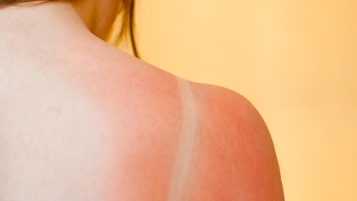
The official “Dog Days” of summer might be over, but August, September, and even October can still host days with dangerous UV index levels. As you head to the beach on the 90-degree day in July, sunburn might be on your mind, but as the temperatures cool, many parents become laxer with sunburn prevention and safety.
Moreover, sunburn isn’t always just a bothersome skin irritant that can be treated with lotion and ale vera. Kids and adults alike are susceptible to lasting damage from the sun’s rays. Learn to recognize, treat, and prevent damage, even after the hottest days of the year.
Sunburn: Bothersome or Severe?
No one likes having sunburn. Often, it leads to peeling, discolored skin, and can be very painful. After a day at the beach, you might need to lather up in aloe vera gel to soothe irritated skin, but sometimes sunburn is much more heinous.
More severe sunburn identifies itself a little differently. Swelling of the skin and blisters accompany sunburn that will require more attention than just added moisture. Especially severe cases of sunburn might even cause fever, nausea, chills, confusion, or fainting. If you, your child, or a family member experience these symptoms, get to a doctor immediately.
Sunburn First Aid Checklist
- Use cool compresses or a cool bath to soothe pain and help lower your child’s temperature
- Apply a moisturizer like a topical pain reliever, aloe vera gel, or hydrocortisone cream
- Give your child acetaminophen or ibuprofen (never aspirin!) if they have discomfort or a fever
- If there are any blisters, take care not to break them open, as they can cause infection
- Keep your child out of the sun until they are healed
- Give your child extra fluid for the next few days to prevent dehydration and promote healing
Kids and adults alike should apply sunscreen every few hours when they are outside. Remember that waterproof sunscreen is helpful, but no sunscreen is truly waterproof. Always reapply after swimming. Different sunscreen strengths will require different application schedules, so check your bottle.
The most important thing to remember is that even though the sun’s rays are not at their most potent, they can still cause damage, no matter the time of year. For more tips on child safety, follow the Specialized Health and Safety Facebook page.

